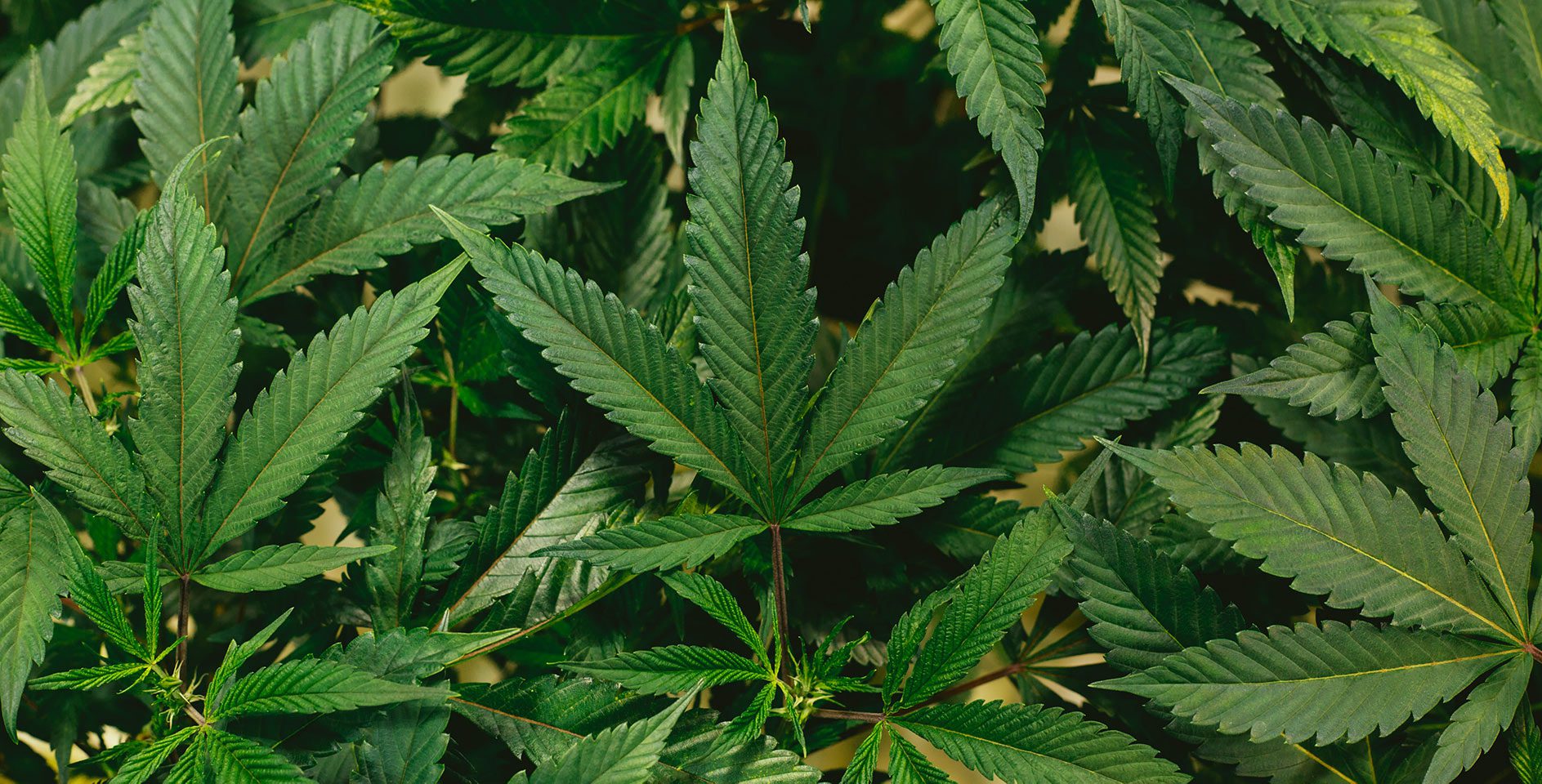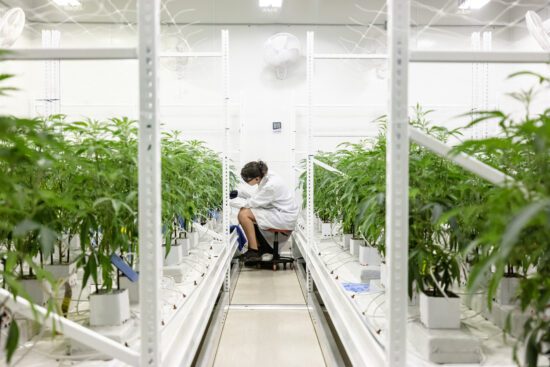One of the well-known reasons people smoke marijuana is to get high and experience the reportedly pleasurable intoxication and euphoria initiated by THC. The hallucinogenic effects are even said to have positive benefits for one’s development as a person, as Motley Crüe sang in their 1994 ode to pot titled Smoke the Sky, “But through time we’ve smoked the sky . . . Compliments the senses, opens up the mind.” But is smoking marijuana a harmless way to expand the mind? Hardly. Marijuana doesn’t open the mind: Evidence indicates marijuana use can damage the brain.
Why does marijuana affect the brain, and why does it get people high? Marijuana interacts with the reward circuit, a group of structures in the brain that are activated by rewarding or reinforcing stimuli. The reward pathway of the brain is connected to areas of the brain that control behavior and memory. The active component in marijuana that gets someone high is THC, and the brain responds to THC by releasing the neurotransmitter dopamine which causes feelings of pleasure. Smoking pot to trigger the reward circuit can be devastating to one’s life and walk with the Lord and, over time, an addiction can develop.
All thoughts and pleasures have a biological component. God has created the reward circuit for a purpose. Because we enjoy pleasurable experiences, we are more likely to repeat actions that activate our reward system.1Matthew S. Stanford, The Biology of Sin: Grace, Hope, and Healing for Those Feeling Trapped (Downers Grove, IL: Biblica Books, InterVarsity Press, 2010), 86. But Christians are called to live holy lives and exercise wise management of life’s pleasures; just because an experience is pleasurable does not necessarily mean it is good. In our fallen condition, we can abuse God’s good gifts—like the reward circuit—for immoral and unholy purposes.
Marijuana’s effects on the brain
Regular marijuana use has very detrimental effects on the brains of young people, and much of the damage is not reversible. Keep in mind that the human brain continues to develop into the mid-20s. In 2017, 6.5 percent of adolescents aged 12 to 17 were current users of marijuana. This means that approximately 1.6 million adolescents used marijuana in the past month.2Substance Abuse and Mental Health Services Administration, “Key Substance Use and Mental Health Indicators in the United States: Results from the 2017 National Survey on Drug Use and Health (HHS Publication No. SMA 18-5068, NSDUH Series H-53),” https://www.samhsa.gov/data/sites/default/files/cbhsq-reports/NSDUHFFR2017/NSDUHFFR2017.htm#illicit1. This is concerning because multiple studies using neuroimaging suggest that regular cannabis use during adolescence may lead to structural changes such as altered cortical gray matter development and reduced white matter mylenation.3Robert L. Page, II, et al, “Medical Marijuana, Recreational Cannabis, and Cardiovascular Health: A Scientific Statement from the American Heart Association,” Circulation 142 (August 5, 2020): e14. And the effects of cannabis on the teenage brain continue after a period of abstinence; adolescent cannabis users still showed subtle neuropsychological deficits compared to nonuser after one month’s abstinence. Furthermore, earlier onset of cannabis use was also associated with decreased processing speed and executive function three years later.4A.D. Meruelo, N. Castro, C.I. Cota, and S.F. Tapert, “Cannabis and Alcohol Use, and the Developing Brain,” Behavioral Brain Research 325 (May 15, 2017): 4. In 2017, the Canadian Psychiatric Association noted that regular cannabis use in youth “can affect aspects of cognition, including attention, memory, processing speed, visuospatial functioning, and overall intelligence.”5Phil Tibbo, Candice Crocker, et al, “Implications of Cannabis Legalization on Youth and Young Adults: A Position Statement Developed by the Canadian Psychiatric Association’s Research Committee and Approved by the CPA’s Board of Directors on February 17, 2017,” Canadian Journal of Psychiatry 63.1 (2018): 66. What this means is that young people who smoke pot are damaging their ability to think clearly and make good decisions.
Marijuana negatively affects the adult brain too, but the person who starts smoking pot at age 30 doesn’t appear to do as much damage to his brain as someone who starts smoking pot at age 15. This doesn’t mean there are no detrimental consequences for adults who smoke marijuana. One European study from 2019 found that people who used cannabis daily had an increased odds of psychotic disorder compared with never users, and the risk rose to nearly five-times increased odds for daily use of high-potency cannabis.6Marta Di Forti, et al, “The Contribution of Cannabis use to Variation in the Incidence of Psychotic Disorder Across Europe (EU-GEI): A Multicentre Case-Control Study,” Lancet Psychiatry 6 (2019): 427 – 436. The risk for psychotic disorders increases with frequency of use, potency of the marijuana product, and as the age at first use decreases.
The path to addiction
Related to marijuana’s negative effects on the brain is the possibility of addiction. One piece of urban legend about marijuana is that it doesn’t affect the brain in the same way as harder drugs, so you shouldn’t be as worried about addiction to marijuana as to alcohol, cocaine, heroin, or other illicit drugs. To be clear, the effects of cocaine and heroin addiction are more severe than marijuana. But marijuana affects the reward circuit similarly to other common drugs of abuse. It is very likely that repeated exposures to marijuana results in neuroadaptations, not only to the reward circuit, but also to downstream targets that are critically involved in the development of drug addiction.7Erik B. Oleson and Joseph F. Cheer, “A Brain on Cannabinoids: The Role of Dopamine Release in Reward-Seeking,” Cold Spring Harbor Perspectives In Medicine 2.8 (August 2012): 10. This means the effects of marijuana on the brain are more complex and far-reaching than most people think.
Approximately 9% of those who experiment with marijuana will become addicted. But the percentage of those who become addicted is much higher for those who start using during adolescence, with one in six teenagers who use pot eventually becoming addicted. Additionally, 25% – 50% of those who smoke marijuana daily will reach clinical criteria for addiction.8Nora D. Volkow, Ruben D. Baier, Wilson M. Compton, and Susan R.B. Weiss, “Adverse Effects of Marijuana Use,” New England Journal of Medicine 370.23 (June 5, 2014): 1, https://www.ncbi.nlm.nih.gov/pmc/articles/PMC4827335/pdf/nihms762992.pdf. It should also be emphasized that the DSM V lists Cannabis Use Disorder as one of its diagnoses.
A Christian should be a good steward of the brain God has given each of us, and a Christian’s life should be consumed by doing the Lord’s will, not being obsessed with the next high.
Romans 13:12 says, “The night is almost gone, and the day is near. Therefore let us lay aside the deeds of darkness and put on the armor of light.” One way we lay aside the deeds of darkness is by not smoking pot. Marijuana negatively affects the brain, and the damage done to adolescent brains is often irreversible. People do become addicted to marijuana, and Christians should not place ourselves in the position of becoming drug addicts. No one who experiments with drugs or alcohol believes he or she will experience the destructive effects of addiction.
That’s because addiction doesn’t happen overnight, but experimentation and recreational use slowly increase until addiction becomes an all-encompassing way of life. A Christian should be a good steward of the brain God has given each of us, and a Christian’s life should be consumed by doing the Lord’s will, not being obsessed with the next high.








